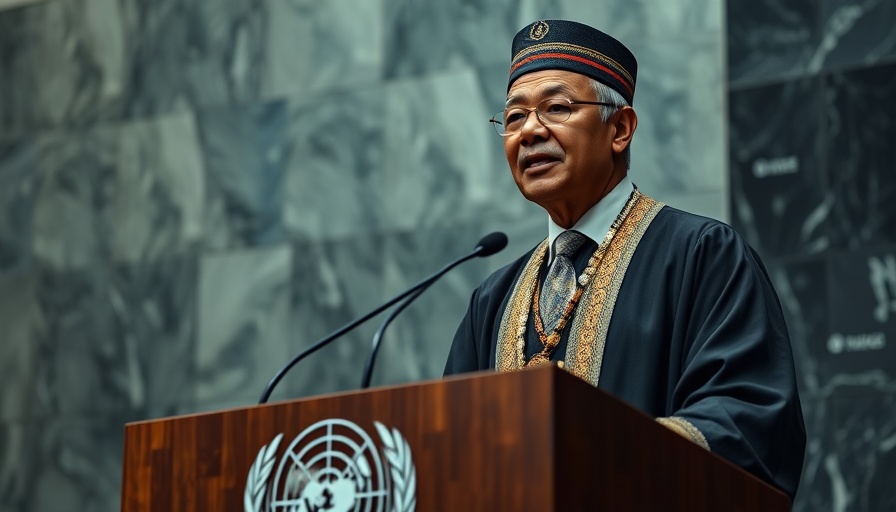
Understanding the Charges Against Former Malian Prime Minister Choguel Kokalla Maïga
The recent arrest of Choguel Kokalla Maïga, Mali’s former civilian Prime Minister, has sent shockwaves across the region. Charged with embezzlement of public funds, Maïga's situation sheds light on deeper issues within the governance of Mali and the broader African political landscape. This event comes against a backdrop of military rule following instability that saw two coups in 2020 and 2021. As Mali stands at a crossroads, understanding the implications of these charges becomes imperative.
In "Mali: Former prime minister Choguel Kokalla Maïga charged with embezzlement," the discussion dives into a pivotal moment in Malian politics that highlights systemic issues of accountability and governance.
Historical Context: Mali’s Governance Crisis
Mali has experienced tumultuous years characterized by military coups and governance challenges. The transitional government, which included Maïga as prime minister, was established to streamline authority and restore public trust. However, allegations of financial misconduct among its officials trigger concerns over governmental accountability and transparency in a nation still reeling from conflict. This incident symbolizes not only a personal fall from grace for Maïga but also an alarming trend of judicial scrutiny threatening Mali's political framework.
Significance of the Charges in African Politics
The embezzlement charges against a high-ranking official like Maïga resonate beyond Mali, reflecting a recurring challenge in African governance—corruption. Political analysts argue that such cases can either catalyze reform or entrench power struggles. The opacity of the trial process is particularly unsettling, as it raises questions about the influence of the military junta, known as the Genta, on judicial proceedings.
Social Implications of Maïga’s Arrest
While Maïga’s arrest has sparked mixed reactions, it has united some Malians who view accountability as a pathway towards improved governance. His predicament creates an atmosphere of distrust, though for others, it serves as a stark reminder of the volatility that can engulf political figures in Mali. The potential for public disillusionment is significant as citizens seek assurance that their leaders will be held responsible for any misappropriation of public resources.
Future Predictions for Malian Governance
Looking forward, the outcomes of this governmental upheaval could lead to significant shifts in Mali’s political landscape. If the Genta's trial leads to further scrutiny and systemic reforms, there may be hope for enhanced governance. Conversely, should it end in selective justice, it could worsen public discontent and exacerbate the political climate. The Genta’s leadership must tread carefully; building a foundation of trust with the populace is vital.
Evaluation of the Current Situation
The current situation exemplifies ongoing tensions between military and civilian structures within the Malian government. The Genta’s crackdown on military personnel under allegations of plotting against the government has raised concerns about legitimacy and civil rights. Stability in Africa is tenuous, and with events like Maïga's arrest, the repercussions can trickle beyond Mali, affecting regional relations.
Call to Action: Engage with the Political Process
The recent developments surrounding Choguel Kokalla Maïga's arrest provide a crucial opportunity for citizens to engage proactively with the political process. Understanding the layers of accountability and demanding transparency can lead to significant changes in governance. As professionals invested in watching the evolution of African politics, now is the time to advocate for reforms that ensure officials are held accountable for their actions and to support movements pushing for political stability and integrity.
In summary, the case against Choguel Kokalla Maïga serves as a mirror reflecting the systemic issues of governance in Mali and broader Africa. The intersection of politics, social expectations, and judicial integrity will play a critical role in shaping Mali's future.
 Add Row
Add Row  Add
Add 




Write A Comment